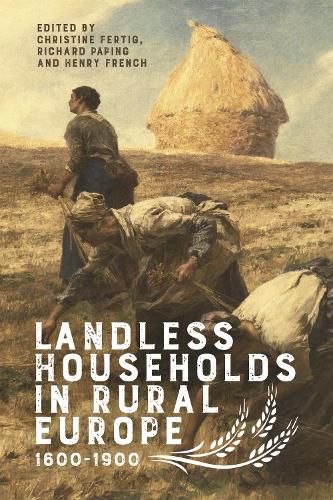Readings Newsletter
Become a Readings Member to make your shopping experience even easier.
Sign in or sign up for free!
You’re not far away from qualifying for FREE standard shipping within Australia
You’ve qualified for FREE standard shipping within Australia
The cart is loading…






The numbers of landless people - those lacking formal rights to land, or possessing only tiny smallholdings - grew rapidly across post-medieval Europe,
as rural population and economic growth divided landowners and farmers from (increasingly) landless rural workers. But they have hitherto been relatively neglected, a gap which this volume, covering Scandinavia, Germany, Austria, Netherlands,
Belgium, Britain, France and Spain from the sixteenth to the early twentieth centuries, aims to fill, making creative use of a diverse range of unexplored sources. Instead of concentrating on the well-documented cases of landholding peasants, it explores the many different experiences of the numerous rural landless. It explains how their households were formed (often in the face of economic difficulties and official hostility), how all the members of a family contributed to its survival, how the landless related to other social groups and negotiated access to vital resources, and how they adapted as rural society was changed by war, politics, agrarian and industrial development, government policy and welfare systems.
Contributors: Arnau Barquer i Cerda, John Broad,
Dieter Bruneel, Christine Fertig, Henry French, Margareth Lanzinger, Jonas Lindstroem, Riikka Miettinen, Richard Paping, Wouter Ronsijn, Merja Uotila, Nadine Vivier
$9.00 standard shipping within Australia
FREE standard shipping within Australia for orders over $100.00
Express & International shipping calculated at checkout
Stock availability can be subject to change without notice. We recommend calling the shop or contacting our online team to check availability of low stock items. Please see our Shopping Online page for more details.
The numbers of landless people - those lacking formal rights to land, or possessing only tiny smallholdings - grew rapidly across post-medieval Europe,
as rural population and economic growth divided landowners and farmers from (increasingly) landless rural workers. But they have hitherto been relatively neglected, a gap which this volume, covering Scandinavia, Germany, Austria, Netherlands,
Belgium, Britain, France and Spain from the sixteenth to the early twentieth centuries, aims to fill, making creative use of a diverse range of unexplored sources. Instead of concentrating on the well-documented cases of landholding peasants, it explores the many different experiences of the numerous rural landless. It explains how their households were formed (often in the face of economic difficulties and official hostility), how all the members of a family contributed to its survival, how the landless related to other social groups and negotiated access to vital resources, and how they adapted as rural society was changed by war, politics, agrarian and industrial development, government policy and welfare systems.
Contributors: Arnau Barquer i Cerda, John Broad,
Dieter Bruneel, Christine Fertig, Henry French, Margareth Lanzinger, Jonas Lindstroem, Riikka Miettinen, Richard Paping, Wouter Ronsijn, Merja Uotila, Nadine Vivier